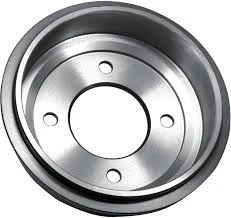
-
 Afrikaans
Afrikaans -
 Albanian
Albanian -
 Amharic
Amharic -
 Arabic
Arabic -
 Armenian
Armenian -
 Azerbaijani
Azerbaijani -
 Basque
Basque -
 Belarusian
Belarusian -
 Bengali
Bengali -
 Bosnian
Bosnian -
 Bulgarian
Bulgarian -
 Catalan
Catalan -
 Cebuano
Cebuano -
 Corsican
Corsican -
 Croatian
Croatian -
 Czech
Czech -
 Danish
Danish -
 Dutch
Dutch -
 Ағылшын
Ағылшын -
 Esperanto
Esperanto -
 Estonian
Estonian -
 Finnish
Finnish -
 French
French -
 Frisian
Frisian -
 Galician
Galician -
 Georgian
Georgian -
 German
German -
 Greek
Greek -
 Gujarati
Gujarati -
 Haitian Creole
Haitian Creole -
 hausa
hausa -
 hawaiian
hawaiian -
 Hebrew
Hebrew -
 Hindi
Hindi -
 Miao
Miao -
 Hungarian
Hungarian -
 Icelandic
Icelandic -
 igbo
igbo -
 Indonesian
Indonesian -
 irish
irish -
 Italian
Italian -
 Japanese
Japanese -
 Javanese
Javanese -
 Kannada
Kannada -
 kazakh
kazakh -
 Khmer
Khmer -
 Rwandese
Rwandese -
 Korean
Korean -
 Kurdish
Kurdish -
 Kyrgyz
Kyrgyz -
 Lao
Lao -
 Latin
Latin -
 Latvian
Latvian -
 Lithuanian
Lithuanian -
 Luxembourgish
Luxembourgish -
 Macedonian
Macedonian -
 Malgashi
Malgashi -
 Malay
Malay -
 Malayalam
Malayalam -
 Maltese
Maltese -
 Maori
Maori -
 Marathi
Marathi -
 Mongolian
Mongolian -
 Myanmar
Myanmar -
 Nepali
Nepali -
 Norwegian
Norwegian -
 Norwegian
Norwegian -
 Occitan
Occitan -
 Pashto
Pashto -
 Persian
Persian -
 Polish
Polish -
 Portuguese
Portuguese -
 Punjabi
Punjabi -
 Romanian
Romanian -
 Russian
Russian -
 Samoan
Samoan -
 Scottish Gaelic
Scottish Gaelic -
 Serbian
Serbian -
 Sesotho
Sesotho -
 Shona
Shona -
 Sindhi
Sindhi -
 Sinhala
Sinhala -
 Slovak
Slovak -
 Slovenian
Slovenian -
 Somali
Somali -
 Spanish
Spanish -
 Sundanese
Sundanese -
 Swahili
Swahili -
 Swedish
Swedish -
 Tagalog
Tagalog -
 Tajik
Tajik -
 Tamil
Tamil -
 Tatar
Tatar -
 Telugu
Telugu -
 Thai
Thai -
 Turkish
Turkish -
 Turkmen
Turkmen -
 Ukrainian
Ukrainian -
 Urdu
Urdu -
 Uighur
Uighur -
 Uzbek
Uzbek -
 Vietnamese
Vietnamese -
 Welsh
Welsh -
 Bantu
Bantu -
 Yiddish
Yiddish -
 Yoruba
Yoruba -
 Zulu
Zulu
Guide to Determining the Correct Size for Your Drum Brakes Based on Vehicle Specifications
How to Tell What Size Drum Brakes You Need
When it comes to vehicle maintenance, understanding the size of your drum brakes is crucial for ensuring safety, performance, and longevity. Drum brakes are often found on older vehicles and some current models, particularly for rear brakes. Here’s a guide on how to determine the size of the drum brakes you need.
Understanding Drum Brake Sizes
Drum brakes are classified by their diameter and width, measured in inches. The size of your drum brakes plays a significant role in your vehicle's braking performance. Larger drums typically provide better heat dissipation and more stopping power, which can be essential for heavier vehicles or those used for towing.
Step 1 Consult Your Vehicle’s Manual
The first step in determining the correct size of drum brakes is to check your vehicle's owner manual. Manufacturers specify the exact brake components for each model, including drum size. This document will not only provide brake sizes but can also include torque specifications, installation procedures, and recommended replacement intervals.
Step 2 Measure Existing Drum Brakes
If you don't have access to the vehicle manual, you can measure the existing drum brakes. Here’s how to do it
1. Safety First Park your vehicle on a level surface and engage the parking brake. It’s recommended to wear safety gloves and goggles. 2. Remove the Wheel Using a jack, lift the vehicle and remove the wheel to access the drum brake assembly. 3. Measure the Diameter Use a caliper to measure the diameter of the brake drum. The inner diameter of the drum is what you need to note. If the existing drum is cracked or worn, replacing it with the same size is generally advisable. 4. Measure the Width After measuring the diameter, measure the width of the drum. This information is just as important for finding compatible replacement parts.
how to tell what size drum brakes

Step 3 Identify the Vehicle Model and Year
If measuring the drum brakes is inconvenient or if you're working on a vehicle you are unfamiliar with, note the make, model, and year of your vehicle. Many auto parts stores and online retailers have databases that will allow you to find the correct drum brake size based on this information. They typically carry a wide range of parts, which can make your search much easier.
Step 4 Consult a Professional
If you are still unsure about the size of the drum brakes your vehicle requires, it is wise to consult a professional mechanic. Not only can mechanics provide you with accurate measurements, but they can also recommend high-quality brake components and ensure proper installation.
Step 5 Think About Upgrades
If you are considering upgrading your brakes for better performance, you may wish to order larger drum brakes. Ensure your vehicle's braking system can handle the increased size. Consult a specialist who can guide you on compatibility, as larger drums may require additional modifications to fit correctly.
Conclusion
In conclusion, determining the correct size of drum brakes is vital for maintaining vehicle safety and performance. By consulting your vehicle's manual, measuring existing parts, and possibly enlisting professional help, you can ensure that you choose the right brake components. Remember, proper brake maintenance not only enhances your vehicle's performance but also promotes safety for you and others on the road. Regular checks and timely replacements will keep your drum brakes in optimal condition, leading to a smoother, safer driving experience.
-
The Ultimate Guide to Semi Trailer Brake Drums for SaleЖаңалықтарApr.27,2025
-
The Importance of Brake Drum and Rotor Pullers in Brake Drum ManufacturingЖаңалықтарApr.27,2025
-
The Best Semi Brake Drums for SaleЖаңалықтарApr.27,2025
-
Quality Truck Brake Drums for SaleЖаңалықтарApr.27,2025
-
Discover the Best Brake Drums for Sale at HEBEI NINGCHAI MACHINERY CO., LTD.ЖаңалықтарApr.27,2025
-
Discover Quality Brake Drums for SaleЖаңалықтарApr.27,2025
-
Understanding Drum Brake Maintenance and Conversion CostsЖаңалықтарApr.03,2025
